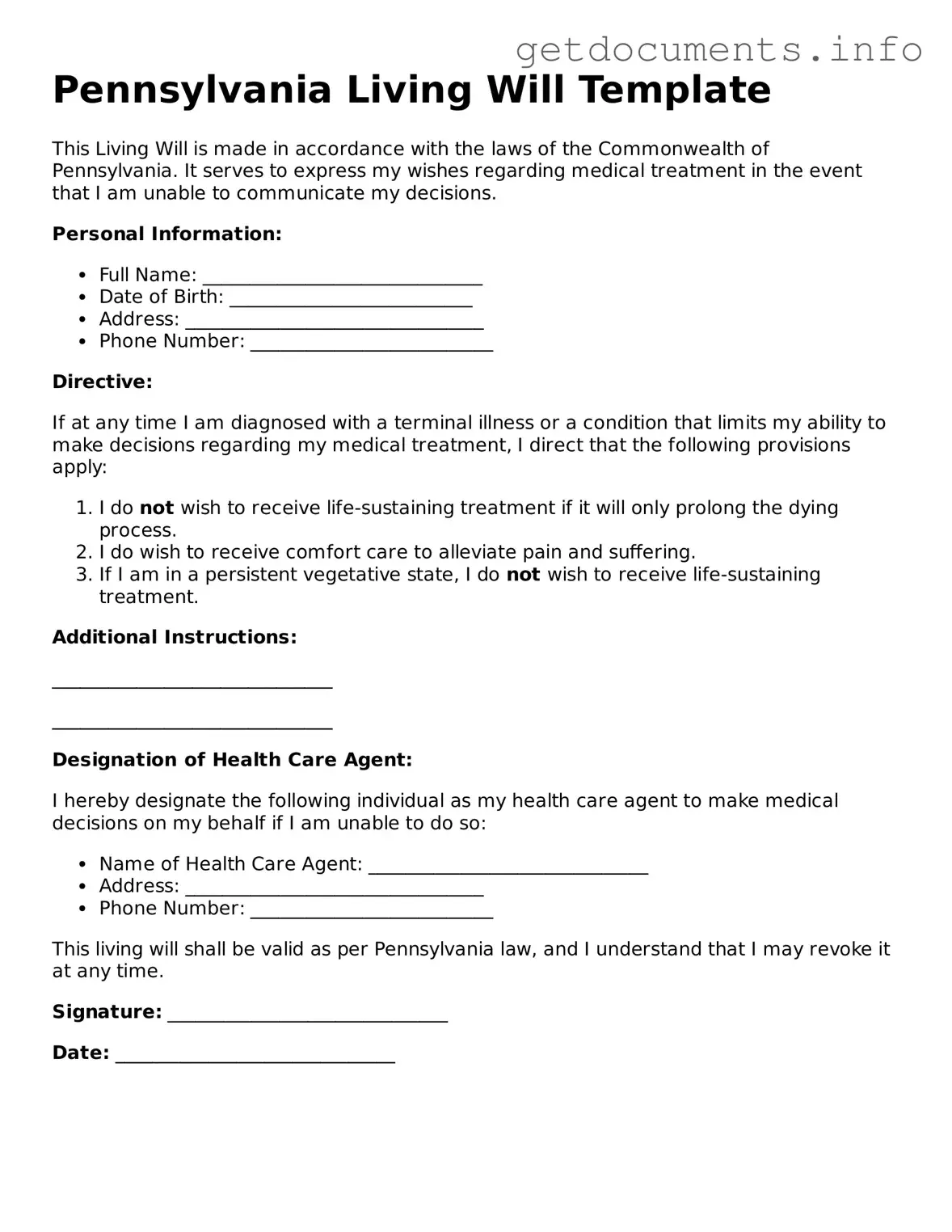Free Living Will Template for Pennsylvania
A Pennsylvania Living Will is a legal document that allows individuals to outline their preferences for medical treatment in case they become unable to communicate their wishes. This form provides clarity for healthcare providers and loved ones during critical moments. Understanding and completing this form is essential for ensuring your healthcare decisions are respected.
Ready to take control of your healthcare decisions? Fill out the form by clicking the button below.
Access Living Will Editor

Free Living Will Template for Pennsylvania
Access Living Will Editor
Got places to be? Complete the form fast
Fill out Living Will online and avoid printing or scanning.
Access Living Will Editor
or
⇩ PDF File
